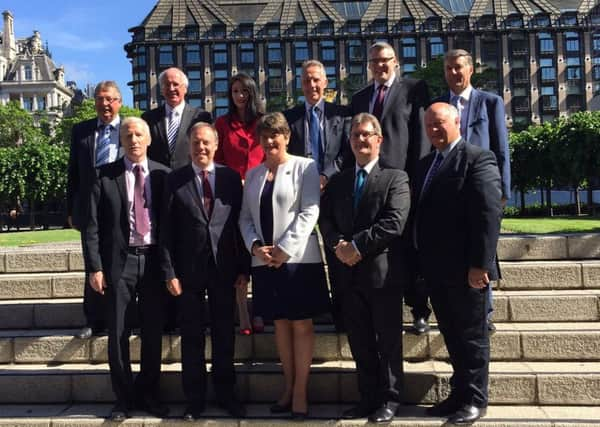John McCallister: I'm a liberal unionist but I welcome the DUP-Tory deal


I opposed unionist electoral pacts because I believed they reinforced tribal division. I support equal civil marriage. I was an enthusiastic supporter of the UUP-Conservative pact in 2010, which was bitterly opposed by the DUP.
I identify with moderate, progressive centre-right politics.
Advertisement
Hide AdAdvertisement
Hide AdAnd yet, I welcome the DUP-Conservative ‘supply and confidence’ arrangement. I believe it is in the interests of Northern Ireland and of the entire United Kingdom.
The arrangement ensures that Northern Ireland politics will have to meaningfully engage with real politics, not just tribal loyalties. When the DUP back – and, crucially, influence – the Conservative government’s position on the economy, on public spending, on welfare, this will almost certainly lead to political debate on Northern Ireland around those issues.
This is good for those of us who believe in the normalisation of our politics.
And it is in the interests of the entire UK. It ensures that the largest party in the House of Commons – and the largest by a significant distance – can form a government at a crucial time for our country.
Advertisement
Hide AdAdvertisement
Hide AdDespite the ridiculous criticism of the Conservative-DUP arrangement by left-wing opinion, it seems obvious that DUP influence will ensure that the Conservatives govern from the pragmatic centre rather than the Right on a range of issues – particularly welfare and public spending. And on Brexit, the DUP’s influence will lead to a more pragmatic deal.
Let’s also remember that the DUP are now backing a governing party which introduced equal civil marriage in England. It is now in the national interest – and in the interests of unionism – for the DUP to drop its use of the petition of concern mechanism to block equal civil marriage passing Stormont.
To state the obvious, the arrangement with the Conservatives – and all the good flowing from it for Northern Ireland and the wider UK – would be compromised if the DUP provoked mainland opinion by blocking equal civil marriage here.
The obvious thing is for the undemocratic petition of concern mechanism to be abolished – if, after all, it is wrong for it to be used to block equal civil marriage, why should it be used on other issues?
Advertisement
Hide AdAdvertisement
Hide AdSome of the opposition to the arrangement reeks of hypocrisy. Labour happily regard the anti-abortion SDLP as a sister party. Sinn Fein’s eagerness to enter coalition government in Dublin is hardly a secret.
It’s also a bit rich for an abstentionist party to criticise another party for its MPs actually doing real work in Westminster. And Labour, we have been told, in 2010 and 2015 made overtures to the DUP in attempts to form a government.
The DUP-Conservative arrangement offers a chance to see significant change in how we do politics in Northern Ireland, drawing us into the real politics of Westminster.
It is an opportunity from which no pro-union party could have walked away.
And it is an opportunity that could bring positive change to politics for all us in Northern Ireland.